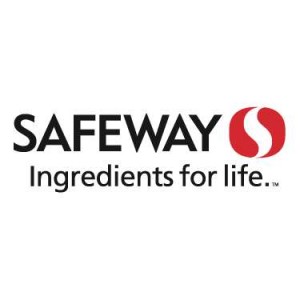 Archimedes said that if you gave him a large enough lever, and a proper fulcrum, he could move the world. For social change, the fulcrum resides in how we make personal choices. So when it comes to health care, what we need isn’t simply good treatment for everyone, which is now the law of the land. We need to incentivize better choices, one person at a time. The choices are small and simple. Get on the treadmill. Pass on the dessert. Toss out the cigarettes. Multiply those three decisions by millions, and make those good choices every day for a year, and we’re on the faster path toward a solution to the crisis in health care costs.
Archimedes said that if you gave him a large enough lever, and a proper fulcrum, he could move the world. For social change, the fulcrum resides in how we make personal choices. So when it comes to health care, what we need isn’t simply good treatment for everyone, which is now the law of the land. We need to incentivize better choices, one person at a time. The choices are small and simple. Get on the treadmill. Pass on the dessert. Toss out the cigarettes. Multiply those three decisions by millions, and make those good choices every day for a year, and we’re on the faster path toward a solution to the crisis in health care costs.
As a nation, we can’t dictate personal choice. But we can guide it. We can reward people for choosing wellness. You need look no further than Safeway for a program that motivates healthful choices. It should become the model for any organization trying to cut costs and improve life for the people it covers.
Here’s how it works. In 2005, Safeway decided to offer employee health coverage based on a pricing model from car insurance. We’re all familiar with it. If you have demonstrated safe driving practices, you’ll pay a lower premium when you insure your car. Good drivers get lower premiums. Bad drivers pay more. Likewise, at Safeway, where employees share in the cost of their health coverage, you pay less if you don’t smoke, exercise, lose weight, and otherwise prove that your behavior will lead to wellness rather than disease. Basically it’s a reward system for doing what’s in your own best interest. As CEO Stephen Burd wrote a few years ago:
“Safeway’s employees pay a portion of their own health care through premiums, co-pays and deductibles. The big difference between Safeway and most employers is that we have pronounced differences in premiums that reflect each covered member’s behaviors. Currently we are focused on (lowering) tobacco usage, weight, blood pressure and cholesterol levels.”
Additionally, when treatment becomes necessary, Safeway helps its people identify the most effective and least expensive service providers.
The results have been remarkable. In its first four years, the health care plan has kept the company’s per capita health care costs virtually flat. In that same period, costs at most companies rose 38 percent. In 2011, Larree Renda, Safeway’s president, announced that its per capita cost for health care hadn’t risen by a single percentage point since 2005, while national health care costs had risen 60 percent in that same span of time.
The program rests on two fundamental insights. The first principle is that nearly three-quarters of all health care costs are the consequence of individual choice: what food you eat, how much energy you burn and whether or not you smoke. The second principle follows directly from the first. Nearly three-quarters of all costs are generated by four conditions cause by bad choices: cardiovascular disease, cancer, diabetes and obesity. Good habits can prevent all of these conditions, in the majority of cases. For most people, future health is fairly predictable, based on what you do with and to your body every day, over the course of ten, twenty, thirty or more years — and insurance coverage is built on predictability.
A year ago, Stephen Burd announced he was retiring from Safeway to “pursue work in health care.” Sounds to me as if, in many respects, he isn’t retiring at all, just finding some new office space. As he put it, “Given my extensive work in health care, I want to pursue that further.”
We’ll be lucky if Burd finds a way to do, on a larger, national scale, what he’s done at Safeway. Per capita and as a percentage of GDP, the United States spends more on health care than any other developed country. Programs that incentivize healthful choices like Safeway’s, if embraced at companies throughout the nation, might go a long way toward bringing health care expenditures down. It’s a way that organizations can do good at a regional and local level, as well as nationally and internationally. Safeway says it has created “a culture of health and fitness.” The whole nation needs to do exactly that.